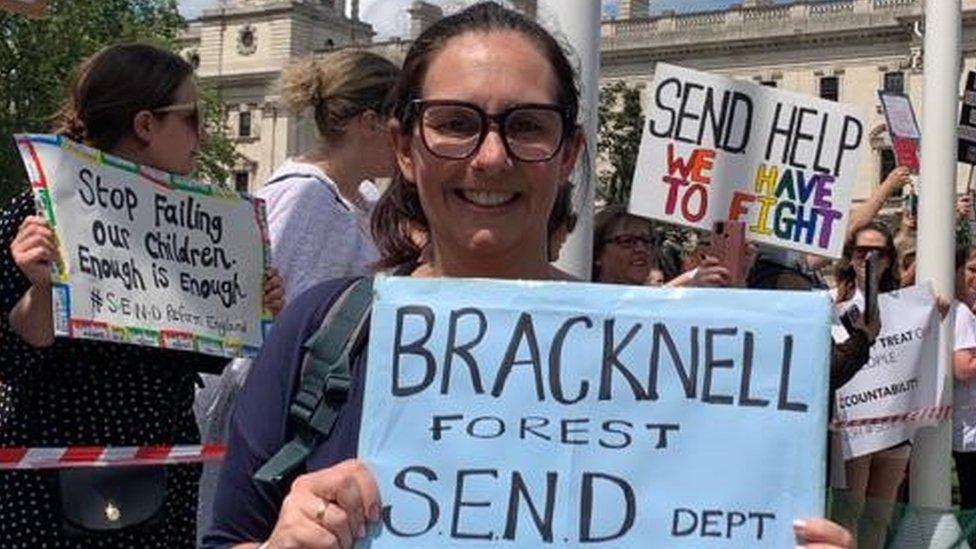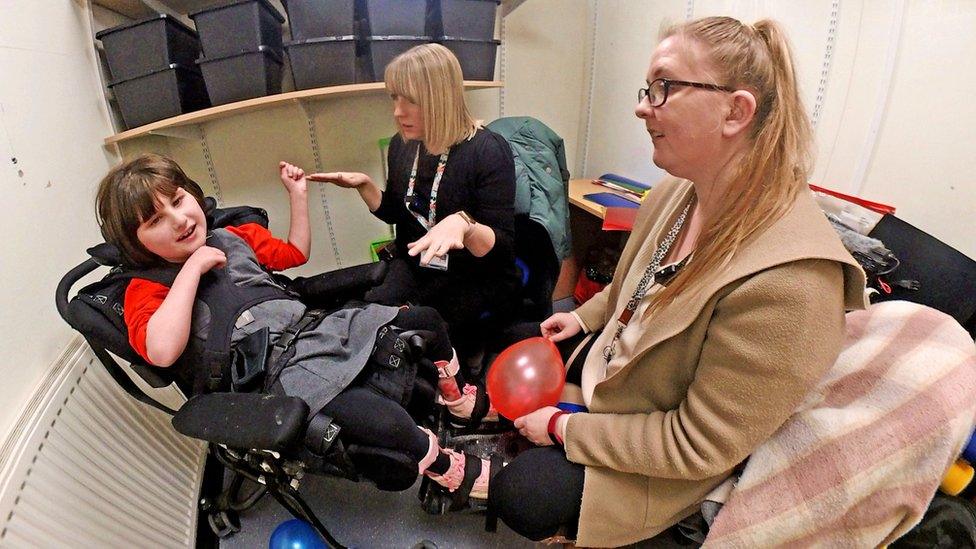Berkshire SEND parents join rally to urge system reform
- Published

Lisa-Marie Reid says the system "isn't good enough"
Parents of children with special educational needs and disabilities (SEND) have taken part in a rally calling for reforms.
The organisers are calling for more support and sweeping changes to provisions for SEND children.
In March, the government unveiled new plans to reform SEND support in England.
The Department for Education (DfE) said its plans aims to improve what it calls a "postcode lottery" system.
Emma Hester, from Bracknell, Berkshire, attended the rally in London on Wednesday.
The former police officer said she left the service after 20 years to retrain as a therapist so she can help her children.
"It is quicker for me to retrain and provide therapy for my own children rather than wait for them to reach the front of the queue for provisions," she said.

Former police officer Emma Hester left the force to train as an occupational therapist
Ms Hester said as a parent of SEND children "it feels like you are going into battle".
"Fighting the system is far harder than having a really difficult and challenging home life," she added.
Lisa-Marie Reid, from Wokingham, Berkshire, said she had managed to get a place for one of her daughters with complex SEND at Addington School, a special education facility in Woodley, Reading.
She said the family was now fighting to secure a speech and language therapist.
"The system isn't good enough," Ms Reid said.
"It was a constant battle to secure the place - and now we face other battles. The issue is that there aren't enough provisions."
The DfE said: "We are aware that some local areas aren't delivering education, health and care plans (EHCP) as they should.
"Where local areas are failing, the department will intervene, using a range of improvement programmes and support from SEND specialist advisers to address weaknesses."

Follow BBC South on Facebook, external, Twitter, external, or Instagram, external. Send your story ideas to south.newsonline@bbc.co.uk, external.
- Published7 June 2023

- Published2 March 2023

- Published20 February 2023
